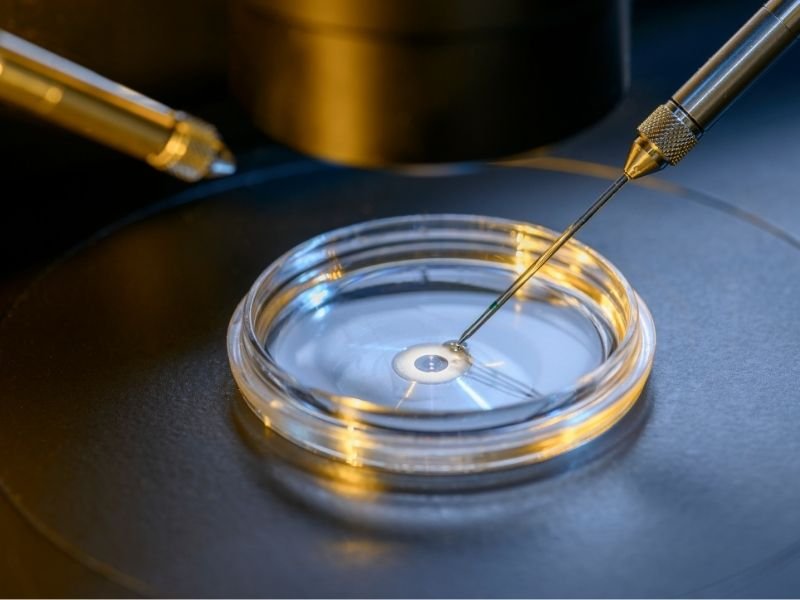News Details
- admin
- 0 Comments
Differences between Exosome Treatment in IVF and Natural Pregnancy

When exploring options for enhancing fertility and improving pregnancy outcomes, understanding the differences between exosome treatment in IVF and natural pregnancy is crucial. Exosome treatment, an innovative approach in reproductive medicine, offers a cutting-edge way to address challenges that traditional methods may not fully resolve. While natural pregnancy involves the body’s natural processes, exosome therapy integrates advanced science to potentially improve embryo quality and implantation success. This comparison not only highlights the unique benefits and limitations of each method but also empowers individuals to make informed choices based on their specific fertility needs and goals. Dive into the distinct aspects of these two approaches and discover how they can impact your journey to parenthood.
What is Exosome Therapy and How Does It Work?
Exosome therapy is revolutionizing the field of reproductive medicine with its potential to enhance fertility and improve IVF outcomes. But what exactly is exosome therapy, and how does it work? Exosomes are tiny vesicles secreted by cells that carry crucial proteins, lipids, and genetic material, facilitating communication between cells. In reproductive medicine, exosome therapy leverages these natural cellular messengers to support embryo development, boost implantation success, and promote overall reproductive health.
By incorporating exosome therapy into your fertility treatment plan, you could harness the power of cutting-edge science to address specific challenges and optimize your chances of a successful pregnancy.
Natural Conception Process: Stages and Features
The natural conception process is a fascinating journey that involves a series of complex and synchronized stages, each crucial for creating new life. It all begins with ovulation, where an egg is released from the ovary and becomes available for fertilization. During this time, sperm travel through the female reproductive tract to meet the egg, resulting in fertilization. The fertilized egg then embarks on its journey to the uterus, where it must implant into the uterine lining to establish a successful pregnancy.
Understanding these stages—ovulation, fertilization, and implantation—provides insight into the natural conception process and highlights the precise conditions needed for successful reproduction. By grasping these key features, individuals can better appreciate how each step contributes to conception and what factors can impact fertility. This knowledge not only enhances awareness of one’s reproductive health but also supports informed decision-making for those planning to start or expand their family.
Advantages of Exosome Treatment in IVF
Exosome treatment is emerging as a groundbreaking advancement in IVF, offering several compelling advantages that could transform fertility treatments. Exosomes, tiny particles released by cells, are rich in proteins and genetic material that play a critical role in cellular communication and tissue repair. When applied in IVF, exosome therapy can enhance embryo development, improve implantation rates, and support overall reproductive health.
One significant advantage of exosome treatment is its ability to boost the quality of embryos, potentially leading to higher success rates. By delivering essential growth factors and signaling molecules directly to the embryos, exosomes can help optimize their development and readiness for implantation. Additionally, exosome therapy may reduce the risk of implantation failure and miscarriage by supporting a healthier uterine environment.
Key Differences Between Exosome Therapy and Natural Pregnancy
Understanding the key differences between exosome therapy and natural pregnancy can provide valuable insights into how each approach impacts fertility and conception. While both aim to achieve a successful pregnancy, they operate through distinct mechanisms and offer unique benefits.
Natural Pregnancy
This process relies on the body’s innate reproductive systems. It involves the natural release of an egg during ovulation, fertilization by sperm, and subsequent embryo implantation in the uterus. This method is influenced by various factors such as overall health, timing, and environmental conditions, all of which play a crucial role in successful conception. Natural pregnancy is a complex, self-regulated process that occurs without medical intervention, reflecting the body’s natural reproductive capabilities.
Exosome Therapy
In contrast, exosome therapy is a cutting-edge medical intervention designed to enhance fertility outcomes. Exosomes are tiny vesicles secreted by cells that carry essential proteins and genetic material. In IVF, exosome therapy involves using these vesicles to improve embryo quality and implantation success. By delivering targeted growth factors and signaling molecules, exosome therapy can support embryo development and optimize the uterine environment, addressing specific challenges that might affect natural conception.
While natural pregnancy relies on the body’s natural processes, exosome therapy offers a scientifically advanced method to potentially overcome infertility obstacles. By recognizing these differences, individuals can better understand how each approach works and make informed choices about their fertility treatment options.

Leave a comment